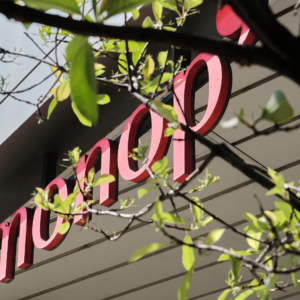La franchise est un mode de création d’entreprise qui repose sur un contrat entre deux acteurs : le franchiseur, qui met à disposition sa marque et son savoir-faire, et le franchisé, qui exploite ce concept en échange d’une redevance. Ce modèle permet de démarrer son activité avec l’appui d’une enseigne déjà reconnue, tout en restant juridiquement indépendant. Concrètement, le franchisé profite d’une notoriété, d’outils et d’une formation, mais doit respecter les règles fixées par le réseau. Comment ce système fonctionne-t-il et est-il adapté à tous les profils ?
Qu’est qu’une franchise ? Définition et fonctionnement
Une franchise est un modèle de collaboration commerciale et juridique par lequel une entreprise, appelée le franchiseur, accorde à une autre entreprise, le franchisé, le droit d’exploiter son concept, sa marque et son savoir-faire en échange d’une compensation financière. Concrètement, c’est la réplication d’une réussite commerciale : selon les dernières données de 2025, le secteur représente en France un chiffre d’affaires annuel dépassant les 80 milliards d’euros.
La définition d’une franchise repose sur trois piliers fondamentaux qui sont :
- La marque : le franchiseur met à disposition ses signes de ralliement de la clientèle, comme son nom commercial, son logo, son enseigne ;
- Le savoir-faire : le franchiseur transmet un ensemble de techniques, de process commerciaux, techniques et logistiques éprouvés et secrets, formalisés dans un “manuel opératoire” ;
- L’assistance continue : le franchiseur s’engage à fournir une formation initiale et une assistance commerciale et/ou technique continue au franchisé pendant toute la durée du contrat.
En somme, l’entreprise franchisée est une entité juridiquement indépendante qui exploite le modèle économique d’une autre entreprise. C’est un partenariat gagnant-gagnant : le franchiseur accélère son développement à moindre coût, tandis que le franchisé réduit les risques liés à la création d’entreprise. Selon les chiffres de la Fédération Française de la Franchise (FFF), le secteur affiche une croissance du chiffre d’affaires global de près de 6% en 2024.
Franchise et Micro-franchise : quelles sont les différences ?
Si la franchise traditionnelle nécessite souvent un apport personnel conséquent, un concept plus accessible a vu le jour : la micro-franchise. Soutenue activement en France par des organisations comme l’ADIE (Association pour le Droit à l’Initiative Économique), la micro-franchise vise à rendre l’entrepreneuriat accessible aux personnes éloignées de l’emploi ou disposant de peu de capital.
La différence fondamentale réside dans le ticket d’entrée. Là où une franchise classique peut exiger des dizaines, voire des centaines de milliers d’euros, la micro-franchise se lance avec un investissement initial très faible, souvent inférieur à 10 000 euros. Elle se développe principalement dans les services à la personne, le petit commerce ou l’artisanat (jardinage, soutien scolaire, conciergerie).
Le concept, comme l’explique l’ADIE, est une “franchise solidaire“. Celle-ci s’adresse aux micro-entrepreneurs qui souhaitent bénéficier de la sécurité d’un modèle clé en main sans les barrières financières habituelles. Les redevances sont également plus faibles et l’accompagnement est souvent renforcé sur les aspects de gestion de base.
Qu’est-ce que le droit d’entrée en franchise ?
Le droit d’entrée est une somme forfaitaire que le franchisé verse au franchiseur à la signature du contrat. Il rémunère la transmission du savoir-faire, la mise à disposition de la marque, la formation initiale et l’assistance à l’ouverture. Ce n’est pas un investissement dans l’entreprise, mais le “ticket d’accès” au concept du réseau.
Entreprendre en franchise, comment ça marche ?
Le fonctionnement d’une franchise est un équilibre entre indépendance et interdépendance. Contrairement à un entrepreneur seul qui part d’une feuille blanche, le franchisé intègre un cadre préexistant. Le processus est contractuel : le franchisé signe un contrat de franchise qui définit les droits et les obligations des deux parties pour une durée déterminée (généralement entre 5 et 10 ans).
| Le rôle du franchiseur (le réseau) | Le rôle du franchisé (l’entrepreneur) |
|---|---|
| Mener des actions de communication nationales. | Gérer son entreprise de manière autonome (juridique et financier). |
| Garantir une assistance permanente et continue. | Participer à la vie du réseau et protéger la marque. |
| Transmettre l’intégralité de son savoir-faire. | Payer des redevances périodiques (royalties). |
| Assurer une formation initiale complète. | Respecter scrupuleusement le concept et les normes. |
| Fournir une marque forte et reconnue. | Verser un droit d’entrée pour accéder au concept. |
Le franchisé est donc un chef d’entreprise indépendant, mais il n’est jamais seul. Il applique une méthode qui a déjà fait ses preuves, ce qui constitue la différence majeure avec la création d’une entreprise classique.
Quelle est la différence entre redevances et royalties ?
Dans le contexte de la franchise, ces deux termes sont souvent utilisés comme synonymes. Ils désignent la somme périodique (généralement un pourcentage du chiffre d’affaires) versée par le franchisé au franchiseur. Cette somme rémunère le droit continu d’utiliser la marque et de bénéficier de l’assistance permanente, de la R&D et des services du réseau.
Pourquoi entreprendre en franchise ? Les avantages et inconvenients
Se lancer en franchise offre beaucoup d’avantages, qui expliquent le succès du modèle économique. Les dernières études de 2025 confirment que le taux de pérennité des entreprises franchisées à 5 ans est supérieur à 80%, un chiffre bien plus élevé que celui des entreprises créées en solo.
 LES POUR
LES POURLes avantages de la franchise
- Réduction du risque : vous exploitez un concept qui a déjà démontré sa rentabilité. Le business plan est plus facile à établir et plus fiable ;
- Notoriété de la marque : vous bénéficiez dès le premier jour d’une image de marque et d’une réputation établies, ce qui accélère l’acquisition de clients ;
- Accompagnement et formation : vous êtes formé au métier et accompagné à chaque étape, du choix du local à la gestion quotidienne ;
- Puissance d’achat : l’effet de groupe permet de négocier de meilleurs tarifs auprès des fournisseurs grâce à la centrale d’achats du réseau ;
- Accès facilité au financement : les banques sont souvent plus enclines à financer un projet de franchise, car le risque est perçu comme étant plus faible ;
- Innovation et R&D : vous profitez des innovations (produits, services, technologies) développées par le franchiseur pour l’ensemble du réseau.
Malgré ses atouts, la franchise n’est pas un long fleuve tranquille et comporte son lot de contraintes.
 LES CONTRE
LES CONTRELes inconvénients de la franchise
- Le coût : le ticket d’entrée (droit d’entrée) et les redevances (royalties) peuvent représenter une somme importante qui réduit la rentabilité nette par rapport à une activité indépendante ;
- Moins d’autonomie : le franchisé doit se conformer aux règles et aux standards imposés par le franchiseur. La créativité et la prise d’initiative sont limitées. Vous ne pouvez pas changer les produits, la décoration ou la stratégie de communication comme bon vous semble ;
- Le contrat : le contrat de franchise est souvent long, complexe et engageant. Il peut contenir des clauses restrictives (exclusivité territoriale, clause de non-concurrence post-contractuelle) ;
- Dépendance au franchiseur : la santé de votre entreprise est directement liée à celle du réseau. Une mauvaise gestion ou une mauvaise réputation du franchiseur peut impacter tous les franchisés ;
- La vie de réseau : intégrer un réseau signifie collaborer avec d’autres franchisés. Si l’ambiance et la communication ne sont pas bonnes, cela peut devenir un poids.
Comment ouvrir une franchise en 2026 ?
Lancer sa franchise est une aventure entrepreneuriale stimulante, mais qui doit être structurée. Voici une feuille de route claire avec les différentes étapes à suivre :
- L’introspection (définir son projet) : avant toute démarche, il faut analyser ses objectifs personnels, ses compétences et sa capacité financière. Cette réflexion constitue le socle du futur projet entrepreneurial. Le choix du secteur doit être guidé à la fois par les centres d’intérêt et par l’ambition à long terme ;
- L’exploration (identifier le réseau adapté) : la recherche d’une franchise repose sur une investigation méthodique. Annuaires spécialisés, salons professionnels ou rencontres directes avec des enseignes permettent d’identifier les réseaux correspondant le mieux au profil et au projet du candidat ;
- Le premier contact (réception du Document d’Information Précontractuel) : dès qu’un échange constructif s’établit avec un franchiseur, celui-ci a l’obligation légale de remettre le DIP. Véritable carte d’identité du réseau, ce document rassemble les données essentielles (résultats financiers, contrat…). La loi accorde un délai de 20 jours pour l’étudier ;
- L’analyse stratégique (construire son dossier) : après remise du DIP, il est recommandé de solliciter l’accompagnement de professionnels (avocat, expert-comptable…). Leur expertise permet d’analyser les données, de valider l’étude de marché locale et de structurer un business plan solide ;
- La recherche de financement (présenter un projet convaincant) : un dossier complet, associé à la notoriété d’un réseau, constitue un atout auprès des établissements bancaires. L’objectif est d’obtenir les financements nécessaires à la concrétisation du projet dans les meilleures conditions ;
- L’engagement (signature du contrat et formation) : la signature du contrat de franchise officialise l’entrée dans le réseau. Le franchiseur transmet alors ses outils et son savoir-faire, notamment via le manuel opératoire et une formation initiale destinée à préparer le franchisé à la gestion de son activité ;
- Le lancement (ouverture du point de vente) : la phase finale consiste à choisir l’emplacement, aménager le local selon les standards de l’enseigne, puis ouvrir officiellement. Cette étape marque le démarrage effectif de l’activité et l’intégration dans la dynamique du réseau.
Puis-je vendre mon entreprise franchisée ?
Oui, en tant que chef d’entreprise indépendant, vous êtes propriétaire de votre fonds de commerce et pouvez le vendre. Cependant, le contrat de franchise inclut presque toujours une clause d’agrément. Cela signifie que le franchiseur doit approuver le nouvel acheteur pour s’assurer qu’il a les compétences et les moyens financiers pour intégrer le réseau.
Quels statut juridique choisir en franchise ?
Le choix du statut juridique d’une franchise est une étape déterminante. Il doit être adapté à la taille du projet, à vos ambitions et à votre situation personnelle. Les statuts sont les mêmes que pour une entreprise classique.
| Statut | Caractéristiques principales | Points forts | Limites |
|---|---|---|---|
| Entreprise Individuelle (EI) | Formalités très simples. Patrimoine personnel et professionnel confondus (sauf option EIRL). | Facilité de création et de gestion. | Risque sur le patrimoine personnel, crédibilité limitée pour un projet de franchise important. |
| EURL (Entreprise Unipersonnelle à Responsabilité Limitée) | Variante de la SARL avec un seul associé. Gérant = TNS (travailleur non-salarié). | Patrimoine personnel protégé, cadre juridique solide. | Protection sociale moins avantageuse que pour un assimilé-salarié. |
| SASU (Société par Actions Simplifiée Unipersonnelle) | Variante de la SAS avec un seul associé. Président = assimilé-salarié. Grande souplesse de fonctionnement. | Excellente protection sociale du dirigeant, flexibilité élevée. Très prisée en 2024-2025. | Charges sociales plus élevées. |
| SARL (Société à Responsabilité Limitée) | Minimum 2 associés. Cadre juridique strict et encadré. | Statut sécurisant, reconnu par les banques. | Fonctionnement plus rigide, moins flexible qu’une SAS. |
| SAS (Société par Actions Simplifiée) | Version pluripersonnelle de la SASU. Idéale pour plusieurs associés ou investisseurs. | Souplesse de fonctionnement, attractive pour faire entrer des partenaires financiers. | Charges sociales plus lourdes, complexité de gestion accrue par rapport à une EI. |
Concernant le statut de micro-entrepreneur (auto-entrepreneur), il est rarement compatible avec la franchise traditionnelle en raison de ses plafonds de chiffre d’affaires et de l’impossibilité de récupérer la TVA. Cependant, il est le statut de prédilection pour la micro-franchise, qui est spécifiquement conçue pour s’adapter à ses contraintes.











